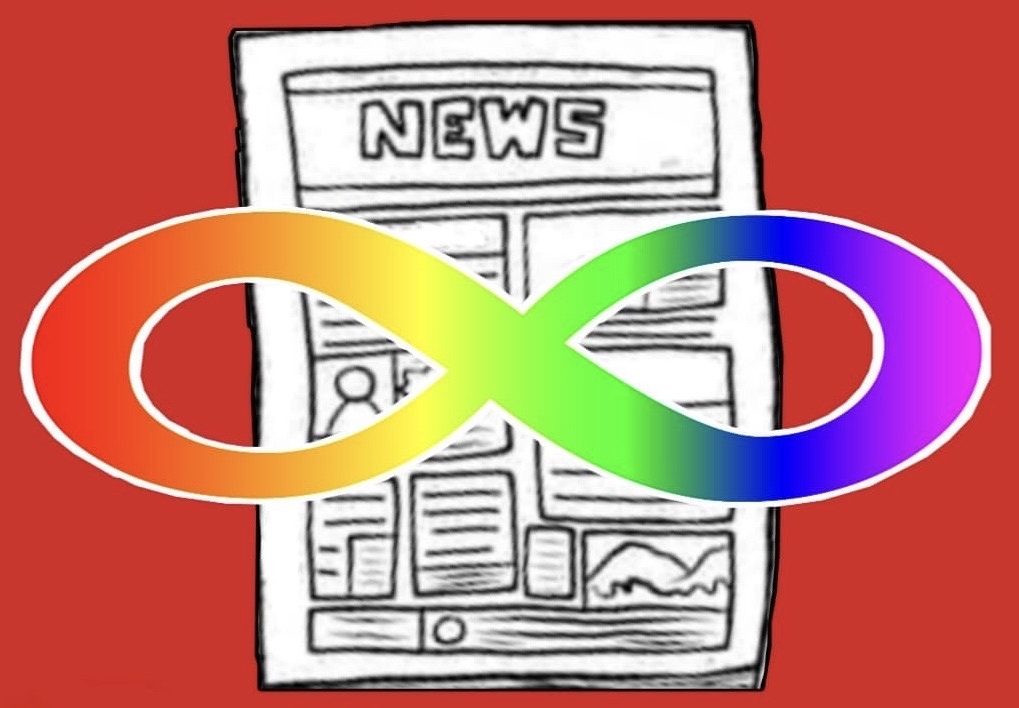
Today, we have interviewed Chris Bonnello, who is a special education tutor, author, and blogger.
Neurodiversity News: Tell me about yourself and what you do.
Chris Bonnello: I’m an autistic advocate, writer, speaker and trainer, doing most of my advocacy through my website, Autistic Not Weird. I’m also a special education tutor, formerly a primary school teacher, and the author of the Underdogs series, which is a series of neurodiverse war novels. I’m also a massive Rubik’s cube nerd, my speed record being 16.626 seconds.
NN: What inspired you to create Autistic Not Weird? I’m a big fan of that page.
CB: Thanks very much! I started it after I “left teaching forever” (although I later realized that special education was where my heart had been all along, so I re-entered the profession. I’ve definitely left mainstream teaching forever though), and I came to realize how much I missed building people up. Also, the lifestyle of getting anxious and failing job interviews for a living just wasn’t working out. I originally planned to write a few blog posts to help a few other autistic people… I had no idea it would one day lead to 130,000 followers, international speaking engagements and a neurodiverse novel series.
NN: Could you tell me about the Underdogs series? Do you have any other upcoming book projects?
CB: The Underdogs series is a near-future war story where the whole of Britain has been imprisoned in giant walled citadels, guarded by innumerable clone soldiers. Only a dozen people remain free in the abandoned countryside fighting a guerrilla war to free the prisoners… eight of whom are teenagers who escaped an attack on their special school.
So you have autistic heroes, dyslexic heroes, heroes with anxiety, ADHD, Down Syndrome and so on, and the main character has a PDA profile. I’m astonished at how well it’s been received: I’ve had parents telling me that their teenagers (who never otherwise read books) have been overjoyed at finding characters they can relate to, and even endorsements from Steve Silberman (of NeuroTribes fame) and Michael Grant (150 books and counting, including the Gone series). And that positive review in The Guardian was quite a pleasant surprise too!
As for other book projects… in the future, certainly. For now, I’m busy working with Unbound to publish the third Underdogs book, while also editing the fourth – the grand finale. There may also be a short story anthology in the works too.
NN: How has being a tutor for autistic kids affected your advocacy?
CB: I’ve never really thought about it to be honest… but now you mention it, it probably has. One thing that annoyed me as a mainstream teacher (and trainee teacher) was being judged authoritatively by people who hadn’t taught a class in ten years or more but expected us to dance to their tune (so to speak). Staying in the teaching profession myself has helped my insights stay relevant – and of course, good teachers are always learning from their own experiences, so the more I stay in the classroom, the more I learn myself and can pass on to those I train.
NN: Who are your greatest inspirations?
CB: Anyone who’s brave, really. I think bravery is one of my favorite characteristics of humans in general – the fact that those who go through a ton of bad stuff and have a load of anxiety as a result can still achieve incredible feats. Often, they even find ways of using their bad experiences to make themselves stronger, which is an awesome act of positive revenge if I ever saw it.
That, and Jesus Christ. Nobody in the world was “too bad” or “too far gone” or “not worth bothering with” to him. In teaching, in advocacy and in many other places, we talk about the value and importance of inclusion as if it’s a buzzword. But if you want to see what it actually looks like – not “you’re different but we’ll have you anyway” but rather “you’re different and you are also unquestionably valued,” then look no further than him.
NN: What do you hope to achieve in the future?
CB: I’d like to play whatever part fits me best in the journey to making the world a more accommodating and understanding place for autistic people. I want to help alter the world’s perception so that the general population understands our needs while recognizing our strengths (and defining us by our strengths rather than presuming weakness), and that employees and teachers learn that any accommodations we need will be more than worthwhile for the kind of employee, student, or person in general who flourishes as a result.
And I’d like to finish the Underdogs series in a way that does it justice. That’d be nice too.
